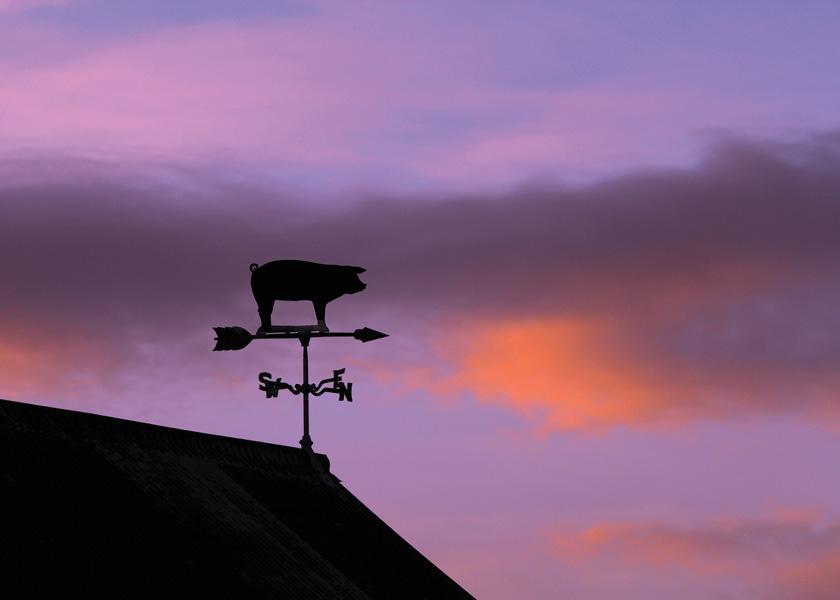Prop 12: A Different Kind of California Wildfire

Proposition 12 legislation took effect in California on Jan. 1, 2022. National Pork Producers Council (NPPC) assistant vice president and general counsel Michael Formica predicts Proposition 12 repercussions will be seen in California as early as this morning.
The law requires egg-laying hens, calves raised for veal and breeding pigs (sows) to be able to lie down, stand up, and turn around in the spaces in which they are housed, without touching the sides of the stall, or another animal.
Most sows are housed in individual pens. Proposition 12 prescribes sows must have at least 24 square feet of floor space to move around, which would effectively require large group pens.
California’s Position
California raises about 8,000 sows—only 1,500 in commercial production—while maintaining a market demand of roughly 700,000 sows. California’s pork needs are generally met through states like Iowa, Minnesota and others in the Midwest.
Formica says only 4% or 5% of U.S. pork production is currently compliant with Proposition 12 legislation.
Various retailers have pleaded with the California Department of Food and Agriculture (CDFA) to rewrite the timeframe for enforcing Proposition 12. CDFA says they lack authority to delay the compliance deadline.
Formica explains that 28 months of unsuccessful compliance delays with the CDFA and the Animal Care Program has put retailers in an “impossible” position that could lead to criminal charges for the sale of uncertified meat.
Lessons Learned
Californians didn’t clearly understand what was being voted on, Formica adds.
“They didn’t know the impact this was going to have,” says Formica. “They were presented the question, ‘Do you think farm animals should be protected from cruel treatment?’ I would have voted the same way.”
Pro Farmer policy analyst Jim Wiesemeyer says before this legislation made its way to the proposal stage, “it should have been battled with questions,” to better educate voters.
NPPC and the American Farm Bureau have filed a joint petition on Proposition 12, scheduled to be addressed by the Supreme Court on Jan. 7, 2022.
Related Articles:
> California’s Prop 12 Took Effect Jan. 1
> Prop 12 Countdown: California Food Industry Leaders Fight Back







